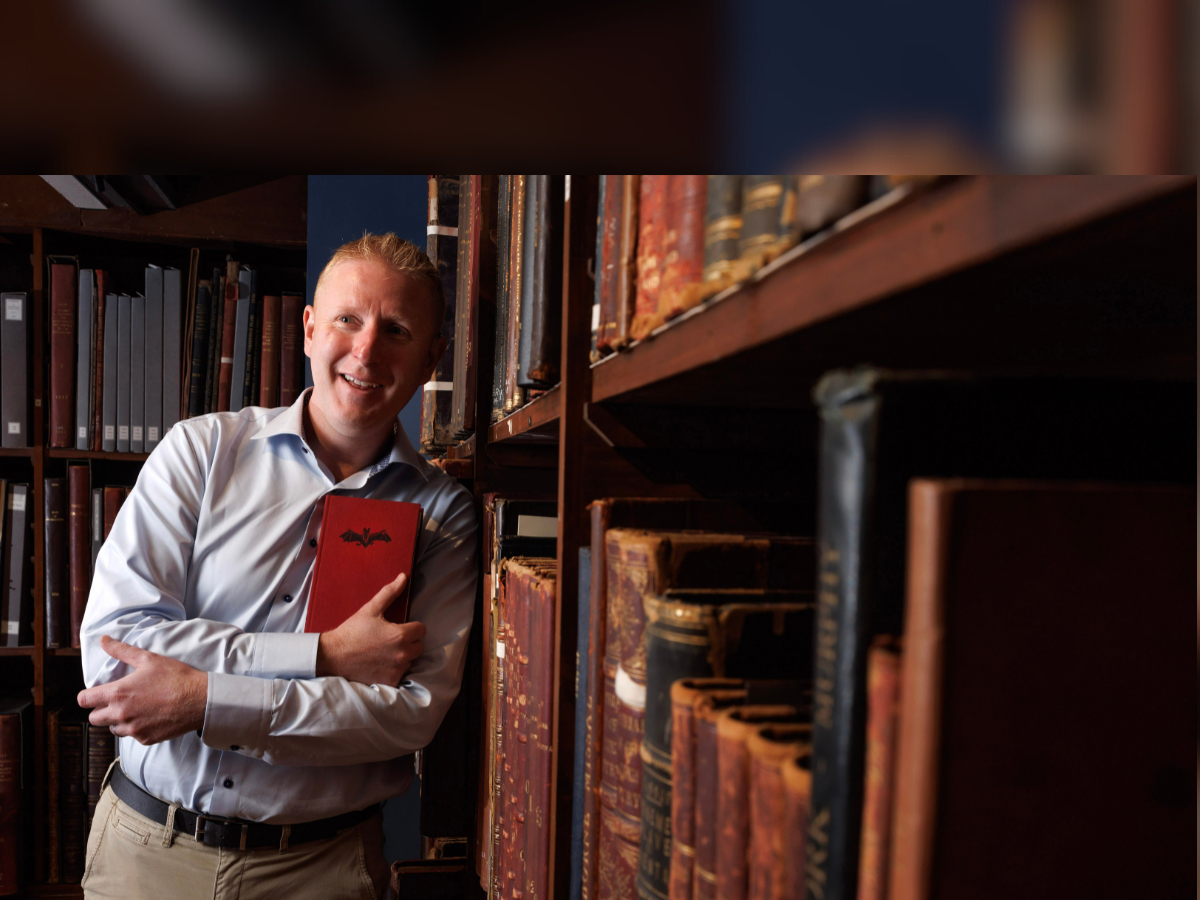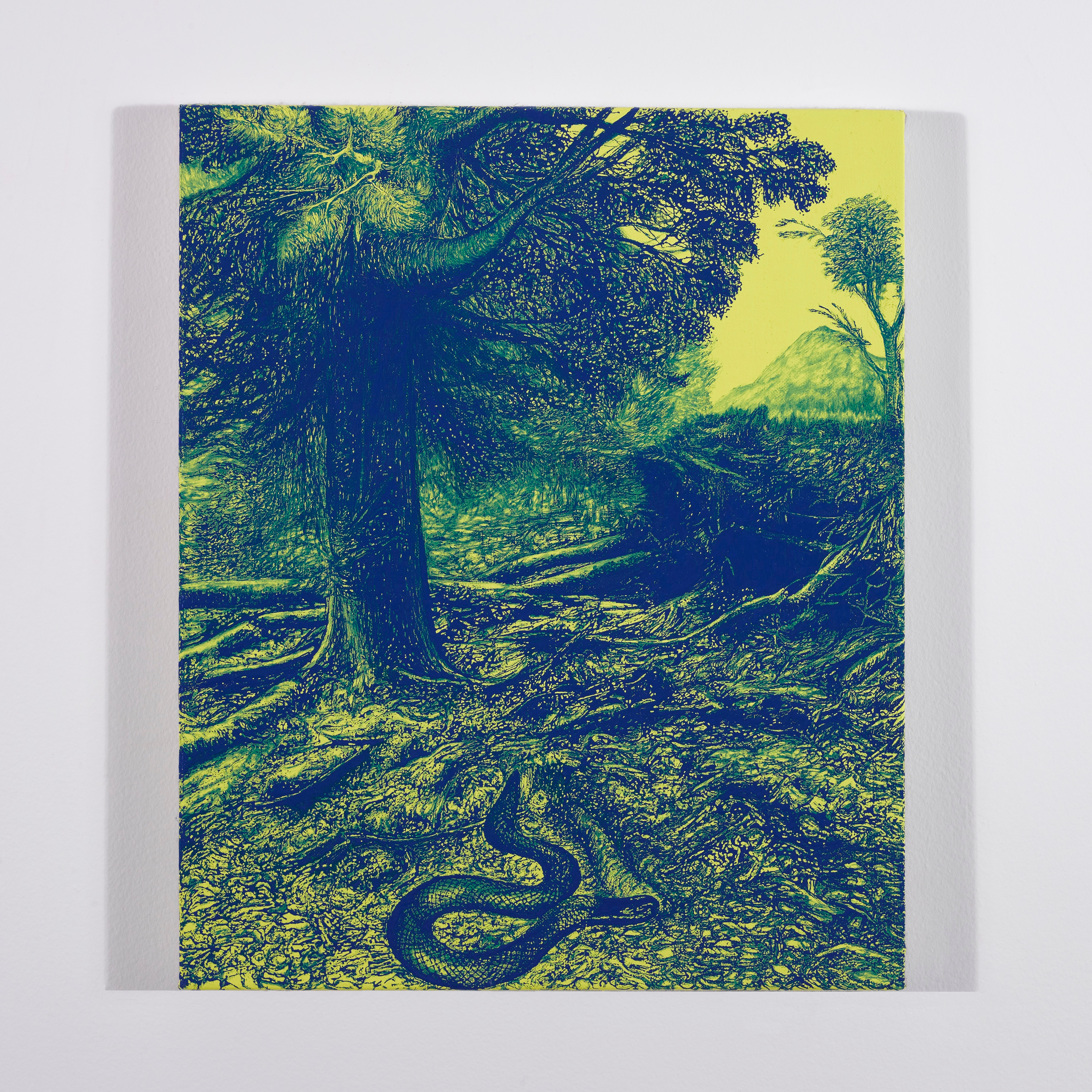Pharmacist discovers ‘spooky’ rare Bram Stoker short story

“Spooky!” is how Brian Cleary, chief pharmacist at Rotunda Hospital, described discovering a dusty short story by legendary author Bram Stoker.
He came across ‘Gibbet Hill’ while completing archival research on the author for a piece of historical fiction he is writing.
Read more: ‘Dexter meets Breaking Bad’ in pharmacist’s crime novel ‘The Chemist'
“Unless somebody else has found this and they’re sitting on it, I’m the only living person who has read this,” he tells C+D.
He found it when he was doing research at the National Library of Ireland (NLI) in Dublin while on leave to retrain his hearing after cochlear implant surgery.
Cleary found an advert in Dublin’s Daily Express advertising its 1890 Christmas supplement, which included Stoker’s ghost story Gibbet Hill.
Read more: Killer Clown: Book reveals murder witness pharmacy worker’s story
As an avid Stoker fan, he investigated whether the story had been documented anywhere, and contacted biographers to see if they had read it.
“It turned out that there was one archivist and researcher who had found it, but they hadn't published it,” Cleary says.

Influencing Dracula
Cleary believes the story had been hidden for over 130 years because it was never published outside of the Christmas supplement, unlike other short stories Stoker submitted to different newspapers to generate multiple publishing fees.
After reading Gibbet Hill, Cleary says he can see how it influenced Dracula, which Stoker wrote in 1897.
Read more: Mystery pharmacist publishes a widely praised romantic novel
“I can see definite themes and language that influence some elements of Dracula, and just the general atmosphere,” he says.
After his discovery in October 2023, Cleary worked with biographer Paul Murray and artist Paul McKinley to turn the 4,700-word story into a book that includes Cleary’s biography on Stoker's early life.

The book also includes an 1862 paper written by Stoker’s mother Charlotte Stoker, which advocates for the education of deaf children.
Cleary says there’s a “nice circularity” with the work Charlotte Stoker did to the time he discovered Gibbet Hill.
Read more: The Poetry Pharmacy secures Pan Macmillan anthology series
“My experience of deafness led to this and other people getting cochlear implants because they've heard my story and of Gibbet Hill. There's probably five or six people who are now going through the process, who were in the same situation as me.”
The book has sold around 4,000 copies so far and sales from it are going to the newly established Charlotte Stoker Fund which will research into preventable deafness in newborns.

Cleary says: “This project will involve gentamicin use in neonates. It’s an antibiotic that's used in a lot of babies in the first few days of life to prevent early onset sepsis. A single dose can lead to severe hearing loss.
“We're looking at implementing testing in an Irish neonatal unit and the Charlotte Stoker Fund will support that.”
Read more: 'I've always loved to read': The pharmacist with a passion for writing romantic fiction
The pharmacist added he is “proud” of pulling together the book in such a small team and it has “added a huge amount of meaning to what was a pretty traumatic and negative experience for me”.
“I can't wait till the genuine Stoker scholars really sink their teeth into it.”
Meanwhile, pharmacist Laurence Tressler has self-published his first novel 'The Ruby Red Dragon', a thriller surrounding the aftermath of an act of pharmaceutical terrorism.







Please sign in
If you are a registered user on C+D Community, please sign in